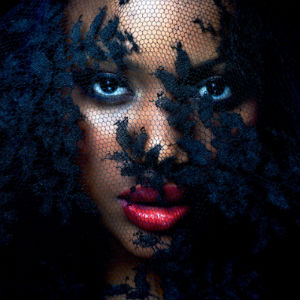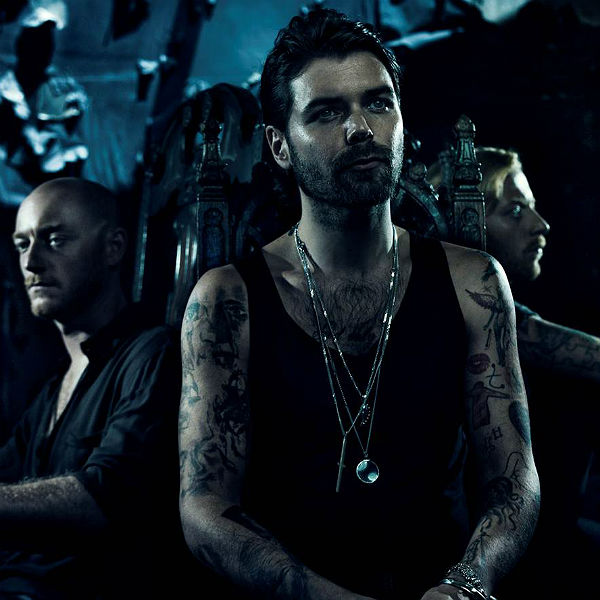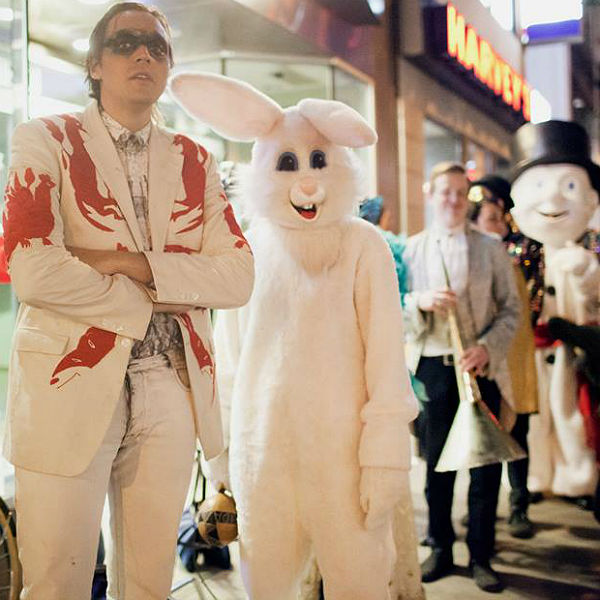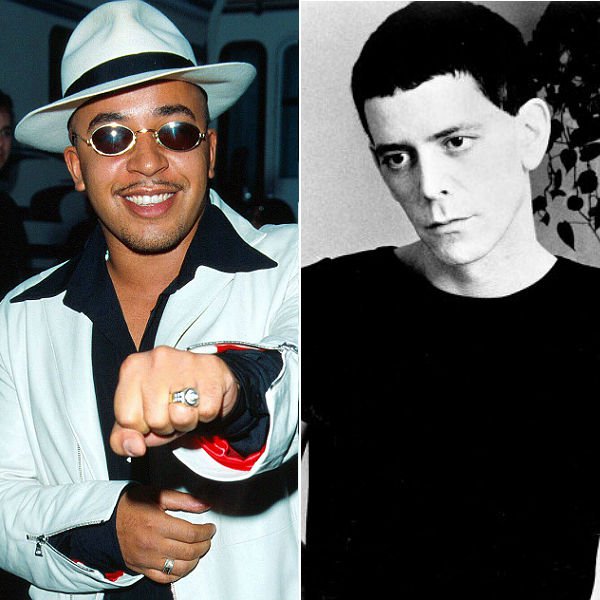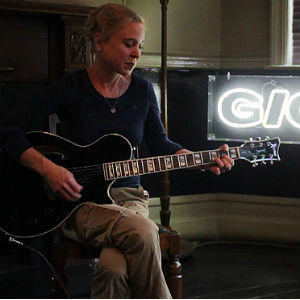
Photo: WENN.com
Arcade Fire first stormed onto the scene way back in the glory days 2004 with their debut album Funeral. The Canadian indie rockers, fronted by husband and wife Win Butler and Régine Chassange, instantly became one of the most widely talked about bands of the decade.
Since then the band have released two more albums, 2007's Neon Bible and The Suburbs in 2010. Now they return with their fourth studio album Reflektor. It's a double album, clocking in at a hefty 70 minutes plus and produced by LCD Soundsytem and DFA hitmaker James Murphy.
The public's interest has been piqued by an underground poster campaign and various low key shows in secret venues as well as appearances on Saturday Night Live and The Colbert Report. The title track was released as the lead single and well received, but can they back it up with a long player that will please their army of fans?
(Disc 1) 'Reflektor'
The lead single is an absolute stormer. Butler and Chassange's call and response vocal lines sound so thrilling it makes you wonder why it's not something they do more often. Murphy's influence is immediately obvious. He gives the bass and synths a sheen the way that only he can. The song moves away from its main motif and there is even at one stage a throwback to the old rave piano so prevalent in early 90s dance classics. A great start.
'We Exist'
No one likes to have their reality questioned, and Arcade Fire understandably seem to have taken it rather badly. Responding with an ever-present bass line that falls somewhere between Roxy Music and Daft Punk, they put forward the case for their existence. Once again the male/female vocal combination is to the fore, soaring over shining guitars and synths. Chassange's voice, always fairly breathy, becomes so much so at some stages that it is almost inaudible. It doesn't take long for Butler to return to his parents, one of his favourite lyrical themes, singing 'daddy it's fine, I'm used to them now'.
'Flashbulb Eyes'
This song starts with another bass heavy intro. There seems to be a theme emerging here. This time though it's not disco that influences the accompanying beat but ska. There is a slight danger of Arcade Fire sailing into the choppy waters of white man reggae here. Maybe they'll find 10cc on whatever island they ended up marooned on. This ends with a fairly layered segue into the next song. It's not the last time this will happen.
'Here Comes the Night Time'
Oh this is more like it. This song starts with some frantic surf guitar. Is that some mariachi music I hear now? The dynamic start doesn't last too long though, the song settling into another Caribbean rhythm. This time though it is much more effective. The percussion reminds me of waves lapping against a shore, maybe the Haiti of Régine Chassange's parents. This song seems to capture both the beauty and the many struggles of the troubled nation. The words seem to be about the spiritual healing power of music and frivolity. Butler sings 'If there's no music in Heaven, then what's it for?' Well quite.
'Normal Person'
'Is anyone as cruel as a normal person?' ask Win Butler. Well the cruellest person is he or she who advised Win that he should try to re-write Addicted to Love whilst wearing a ZZ Top style beard. The result is predictably not what anyone is after. A bit of a turkey I'm afraid.
'You Already Know'
Bloody hell it's Jonathan Ross! This song starts with a sample of our very own Wossy introducing the band as musical guests on his show. It's pretty chaotic this one. Not chaotic in the way that some of the playing on Funeral was, which was both necessary and charming. This is chaos by design. Butler asks the protagonist 'please stop wondering why you feel so bad, you already know'. This instantly brings to mind 'You just Haven't Earned it Yet, Baby' by The Smiths. The vocal delivery even seems to ape Morrissey in some parts. Musically too it could easily be a Morrissey album track.
'Joan of Arc'
The song that brings the first disc to a close starts with a burst of punk energy before settling into its main theme. This time when it settles into the heart of the song it reveals a Goldfrapp style disco stomper. Win Butler's vocals always sound pleading, but on this song it seems even more desperate. He seems to be asking us for something but we can't work out what it is. Like the crying of a child, it is frustrating for both parties. Wait though, Régine's back on vocal duties. Singing in French as is her wont, well you'd have to for a song called Joan of Arc I suppose. I must say it's great to hear her voice again.
(Disc 2) 'Here Comes the Night Time II'
Disc two starts in sombre mood. If part one of this song was about a good night out, the second seems to be about the fear of the oncoming darkness. It's a classic lament with mournful cello and pizzicato violins scattered liberally. The many layers and sorrowful tone bring to mind Spiritualized, and it is a strong start to the second half.
'Awful Sound'
With the start of this song I am starting to think the second disc is going to be a lot more like the previous Arcade Fire albums. This track starts with tribal, military sounding drums. There is an acoustic guitar, I think for the first time in the whole record. This is followed by a chorus that sounds like it is meant to be uplifting, but almost desperately so. The joint vocals here don't really work, with a melody that belongs back in the 60s. The ending brings to mind the final refrain from Hey Jude. It's not Win's fault, he wasn't here last summer, but someone really should have told him we all hate that song now.
'It's Never Done'
Another fuzzy bass intro puts pay to any thoughts that disc two is to be a completely different beast to the first. A strong guitar line brings to mind The Power Out from Funeral. They've obviously saved the guitar setting from that recording. It's another song that clocks in at over six minutes. Arcade Fire have always had a tendency towards the epic, but on previous albums there has been relief in the form of shorter, more punchy songs. This record is in danger of tipping into self-indulgence, with almost every song taking us deeper into the musical whims of Win Butler. This one drags on slightly, and I'm hoping this isn't going to set a trend for the remaining tracks.
'Porno'
This is one of the first times I can remember Arcade Fire delving into the seedier side of life. Like 'This is Hardcore' by Pulp, this song attempts to evoke images of grubby cinemas and shifty characters trying to sink into even grubbier seats. Strings that could easily come from Serge Gainsbourg's Histoire de Melody Nelson add to this feeling. However, whereas Jarvis Cocker's score transports us to the salacious underworld, this feels like watching a West End play about that world, sitting in the sanitised environment of a large theatre. The pace of the song is slightly too fast to drag us down to the depths it wants to take us. Butler doesn't have Cocker's patience with the subject matter, if you'll pardon the pun, at hand.
'After Life'
The penultimate track is an ode to living for the day and not living for the promise of mysterious rewards in the future. 'Aferlife, oh my God what an awful word' is Butler's opening gambit. Certainly not one of his most elegant constructions. Musically it is more of the same. The bass still playing lines from the disco for beginners songbook. The vocals still pleading for answers to questions that are not yet fully formed. Régine Chassange has some vocal duties, but she still doesn't have much to work with. Her voice really is criminally underused on this album.
'Supersymmetry'
Imagine that Bernard Sumner had written the music for Atmosphere in 1990 and recorded it with New Order instead of Joy Division long after the tragic death of Ian Curtis. Are you there? Good. Now you can save yourself 11 minutes and 17 seconds because that's exactly what this song is. The last 5 minutes or so are just tuneless bleeps and other assorted sounds that long outstay their welcome. A frustrating end to a frustrating album.
Verdict
It's difficult to judge this album on its own merits and not against the band's outstanding previous output. Funeral was seminal, Neon Bible started so promisingly then faded and The Suburbs moved the band subtly and very successfully into a new direction. With Reflektor there seems to be an attempt to move the music onwards once more.
This time it seems to be into musical territory the band don't properly understand. Working with James Murphy is a move that signals their intentions very clearly, but it's not a union without its problems. With LCD Soundsytem Murphy took the slick beats of electronica and infused them with unmistakable humanity and, crucially, a sense of humour. Arcade Fire's incredibly earnest themes worked so well within the framework of the archetypal indie album, infused with just a bit of French Canadian eccentricity. It is a genre that welcomes such themes and enriches them. The same just can't be said of disco and synth laden alternative rock. It needs to be self aware, achingly sometimes, and pulled off with something of an arched eyebrow. This is something Arcade Fire were never going to be able to pull off.
The other aspect of the album I found so disappointing is the increasing marginalisation of Régine Chassange. On all previous albums the songs where she takes on lead vocal duties have been both highlights and welcome relief from the emotional weight of Win Butler's delivery. Chassange sings emotionally as well, but something about it brings a much needed charm and lightness to the songs. For Funeral see Haiti, Neon Bible Black Wave/Bad Vibrations and The Suburbs Sprawl II. There is just simply no equivalent here. Much like The Pixies were when Kim Deal's vocal duties were gradually taken away, Arcade Fire are a much poorer band for it.
There are good songs on this album. The title track and Here Comes the Night Time parts I and II are notable highlights. Overall though this is not a well conceived or executed album, and I can't see history judging it kindly against the band's stongest work.
Reflektor is available on 29th October on Mercury Records


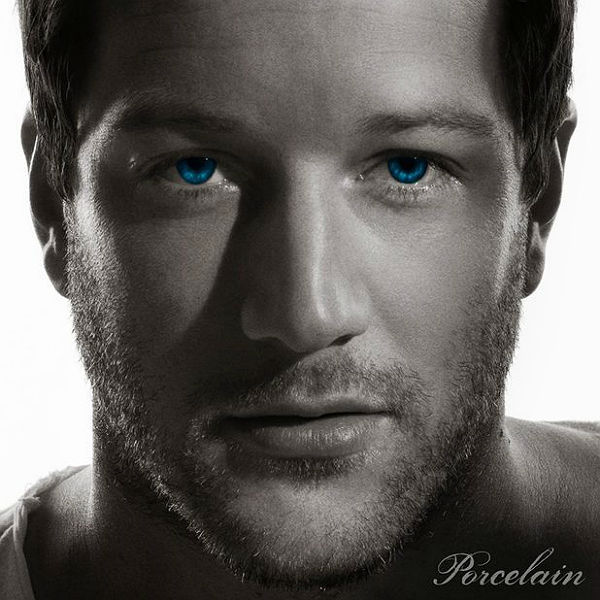


.jpg)

